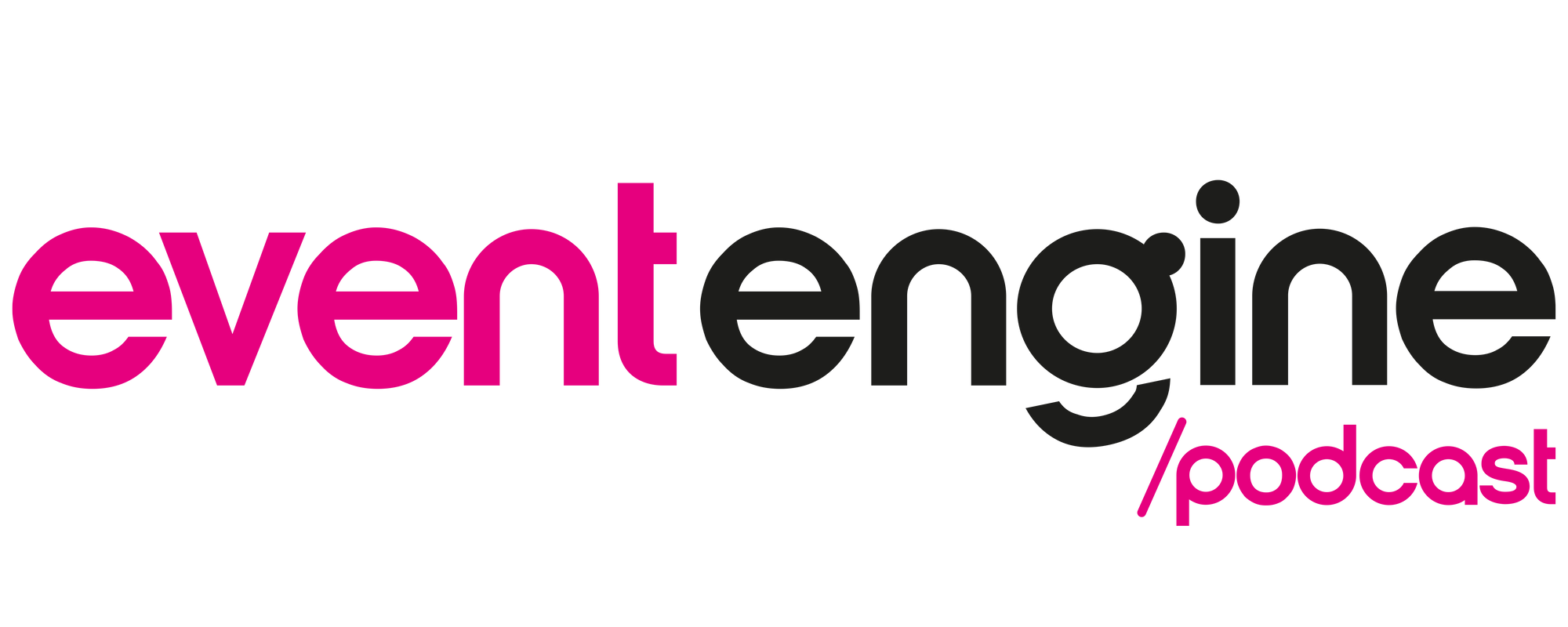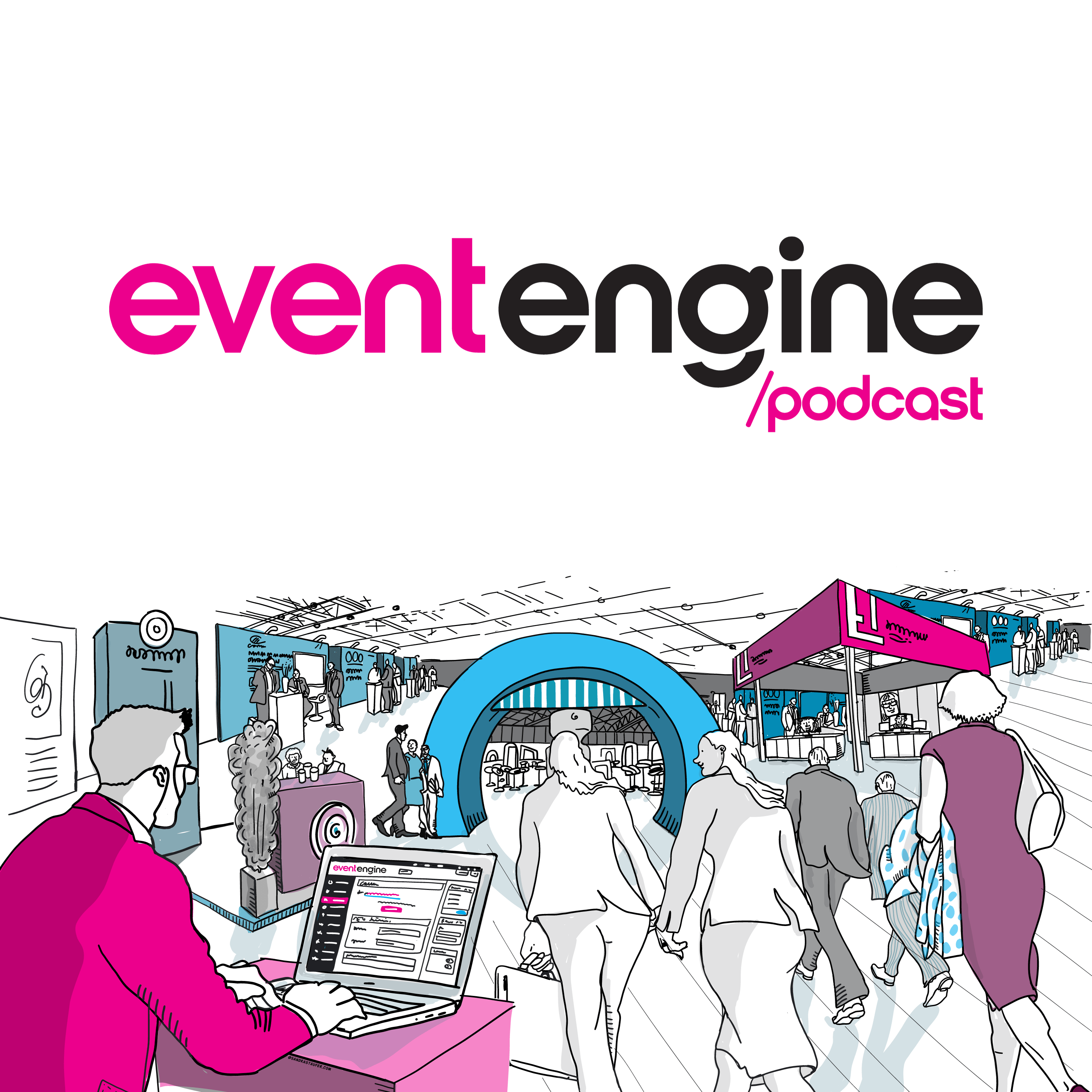
2:6 Which is right? In-person or virtual?
Choosing between in-person or virtual events? Explore key advantages of both formats in this episode to make an informed decision that aligns with your goals, engages your audience, and fits your budget.
Struggling to decide between an in-person or virtual event? You're not alone. With technology constantly evolving and remote work becoming the new norm, it's tough to know which format will best serve your event objectives and keep your audience engaged, all while staying within budget.
In this episode, we've got your back. We'll be breaking down several key advantages of both in-person and virtual events to help you make a well-informed decision that truly meets the needs of your target audience.
If you've ever found yourself wondering which route to take, this episode is loaded with insights and factors to consider that will help you navigate this crucial choice.
In-Person Advantages
- Networking Opportunities: Meeting face-to-face helps build stronger, more memorable connections.
- Immersive Experiences: Interactive workshops and immediate feedback create engaging learning environments.
- Local Economic Impact: Hosting events supports the local economy and boosts tourism.
- Personal and Professional Growth: A mix of perspectives, inspiration, and motivation.
Virtual Advantages
- Cost-Effectiveness: Lower expenses for organizers and attendees make virtual events more accessible.
- Access and Inclusivity: Online events remove geographical barriers and accommodate special needs.
- Analytics and Insights: In-depth data on attendee behavior helps refine future events.
- Environmental Sustainability: Virtual events reduce carbon emissions and waste.
Key Takeaways
- Define your event objectives: Pinpoint your main goals and choose the format that aligns with them.
- Know your target audience: Cater to their preferences and expectations.
- Assess your resources and budget: Balance the costs and benefits of each format.
- Keep public health and safety in mind: Opt for the safest and most responsible choice.
Don't forget, a hybrid approach combining elements of both in-person and virtual events might be the perfect solution for your event.
Transcript
Welcome to the Event Martech podcast! This is your host Lee, and on today’s show we're diving into a topic I know many in this day and age are grappling with: in-person events versus virtual events. With technology advancing at lightning speed, virtual events have surged in popularity, but that doesn't mean in-person events are out of the picture.
In fact, both formats have their own unique benefits, and it can be pretty tricky to figure out which one's the best fit for your next event.
In this episode, let’s break down the key advantages of both in-person and virtual events, side by side. Then we’ll look at some factors to consider when choosing between them.
So, grab your favorite beverage and get ready to explore…
Zooming in on in-person events the first big advantage is networking. When you're actually at an event with other people, you can really feel the energy and vibe, which makes it so much easier to connect with others. You're able to pick up on those subtle non-verbal cues like facial expressions and body language, which really help you build rapport and trust more effectively than through virtual communication.
It's just so much easier to form stronger and more memorable relationships. You can share stories, experiences, and ideas in a more natural way, leading to deeper conversations that might result in valuable partnerships or collaborations. Plus, when you connect with someone face-to-face, it's more likely that you'll stay in touch and nurture those relationships long after the event is over.
And let's not forget about those spontaneous conversations and discussions that can happen at in-person events. You know, when you're grabbing a coffee, waiting in line, or just wandering between sessions, you might strike up a conversation with someone and end up discovering a shared interest or a new opportunity. These serendipitous moments can lead to unexpected insights, innovative ideas, or even new friendships. It's really hard to replicate that kind of experience in a virtual environment, which is why attending in-person events can be so valuable.
The second great in-person advantage is the level of engagement and immersion. Depending on the event style, you could get the chance to take part in interactive workshops and hands-on experiences. You can actively participate in activities, work together with others, and try out new tools or techniques right there on the spot. Not only are these experiences engaging, but they also help reinforce learning and skill development.
Event teams get the advantage of real-time feedback and audience participation. Speakers and presenters can read the room, see how people are reacting, answer questions on the spot, and even adjust their delivery based on the crowd's energy. This kind of interaction creates a more dynamic and responsive learning environment, which is something that can be hard to achieve in a virtual setting.
And don’t forget the atmosphere, the connections you make, and the shared experiences with others all come together to create lasting memories. These memorable moments can be truly inspiring and help build a strong sense of community and camaraderie among attendees.
Third is the local economic impact. When you host an event, you're actually supporting local businesses and venues like hotels, restaurants, and event spaces. These events often lead to increased bookings, foot traffic, and revenue, which is great for the local economy.
Depending on your audience and reach you can attract attendees from other cities, states, or even countries. This influx of visitors boosts tourism and generates additional revenue for the local economy as attendees explore the area, shop, and dine during their stay.
Lastly, there are the opportunities for personal and professional growth. Physical events provide an excellent opportunity to acquire new skills and broaden your knowledge. Workshops, expert-led sessions, and panel discussions are interactive, promoting deeper understanding and effective skill development. The venue gathers individuals from various backgrounds, industries, and expertise, fostering a rich exchange of perspectives. This diversity can lead to valuable insights and stimulate fresh ideas that may not arise in a virtual environment.
Being physically present with thought leaders, experts, and fellow attendees can be both inspiring and motivating. The energetic atmosphere encourages you to challenge yourself, take risks, and pursue your goals with renewed determination, making it a truly enriching experience.
Now let's shift gears and explore the advantages of virtual events.
First off, virtual events can significantly reduce overhead costs. There's no need to rent a venue, pay for catering, or manage on-site logistics. This reduction in expenses allows organizers to allocate resources to other aspects of the event, like content and marketing.
For attendees, virtual events can be more cost-effective too. There's no need to spend money on travel, accommodations, or meals and this can reduce the financial friction allowing more people to participate and engage with the event.
With this also comes the potential for scalability, allowing organizers to accommodate large numbers of attendees without the constraints of a physical venue. This can result in a broader reach and higher attendance rates.
Next advantage is access and Inclusivity. When online, geographical barriers are no longer an issue. Attendees can join from anywhere in the world, making it possible to connect with a global audience and share knowledge across borders.
There’s also more flexibility when scheduling. Attendees can choose to watch live sessions or access recorded content at their convenience, making it easier for them to participate despite time zone differences or busy schedules.
Virtual events can be more inclusive for individuals with disabilities or special needs, as they can access content and participate from the comfort of their own homes, without facing physical barriers or accessibility challenges.
For the organiser the next advantage is Analytics and Insights
Online event platforms can offer analytics and insights that provide valuable data on attendee behavior, which helps organizers understand their audience better and improve future events. This information includes attendance, engagement levels, and content preferences. Real-time data monitoring during the event helps identify issues and optimize the experience, and the analytics gathered inform the development of more relevant and engaging content for the future.
Last but not least there’s the environmental and sustainability factor.
Digital events have a lower environmental impact compared to physical. With attendees joining remotely, there's a significant reduction in carbon emissions from travel and transportation.
There is less waste and resource consumption, as there's no need for printed materials, physical event setups, or catering services. This can contribute to a more sustainable approach to event planning and you can check out episode 5 of season 2 that focuses on physical event sustainability.
We’ve heard advantages for both formats, so to wrap up, let's discuss some factors to consider when choosing between types of event.
First, what are your event objectives?
Think about the primary goals of your event. Are you aiming for networking and relationship-building, or is your focus more on sharing information and content? Depending on your objectives, one format might be more suitable than the other.
Next, consider your target audience and their preferences. Do they value face-to-face interaction, or are they more comfortable with virtual participation? Understanding your audience's expectations can help ensure you're delivering an event experience that meets their needs.
Be sure to take into account the resources and budget you have at your disposal. In-person events can be more expensive, but they also offer unique benefits. On the other hand, virtual events are generally more cost-effective but may not provide the same level of engagement and connection.
And finally in today's world, now more than ever before, it's crucial to consider public health and safety concerns. Depending on the current situation, a virtual event may be the safest and most responsible option.
So, there you have it, folks.
We've seen how in-person events offer unique networking opportunities, immersive experiences, local economic impact, and personal and professional growth opportunities. On the other hand, virtual events excel in cost-effectiveness, access and inclusivity, analytics and insights, and environmental sustainability.
It's crucial to weigh the pros and cons of each format to decide which one best suits your event objectives and audience preferences. Remember, you might even consider a hybrid approach that combines elements of both in-person and virtual events, offering the best of both worlds to your attendees.
Folks, we'd love to hear your thoughts. Do you have a preference in event format and type? What has been your experience with either?
Please share your insights and opinions in the show notes on our website.
And remember, if we don’t see you in the comments, then let’s see you in the next episode.









